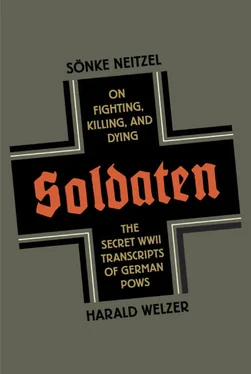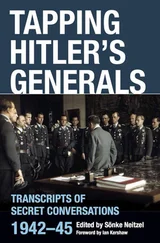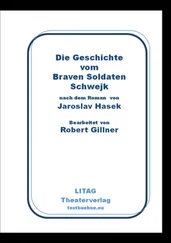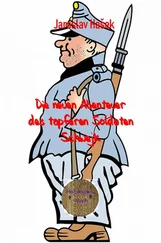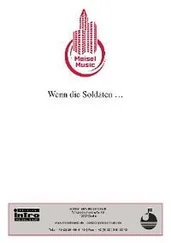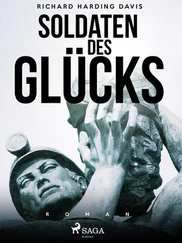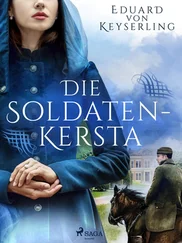From the perspective of Luftwaffe fighters, there was no difference between a raid against a military target in the strict sense, an attack intended to terrify civilians, or a bombing mission aimed at a group of partisans:
WINKLER: We had to deal with partisans down there, you can’t imagine it… suddenly retrained the torpedo pilots to use bombs, dive bombing in the “88.” It was wonderful. But it wasn’t counted as a warflight.
WUNSCH: Not even as an operational flight?
WINKLER: No it was only a game. We always carried as many 10 kg. fragmentation bombs as possible. The mission lasted 15 minutes and we took off repeatedly throughout the day, from dawn to dusk, we dived—swish—and dropped the bombs. Then we returned, reloaded, took off, dived and dropped our bombs again. It was fun.
WUNSCH: Had they no defenses?
WINKLER: Don’t say that, the fellows had AA guns… The CO carried 50 kg. bombs. The CO took off first, made a quick survey, “Aha, there’s a house with a few motor vehicles.” He’s a pilot himself, ssst, the old “88” dives at an angle of 80 degrees, he presses the little button, banks quickly and makes for home. PWs were brought in the next day by the SS and by a Cossack unit; we had a Cossack unit, and they landed paratroops in there too… everywhere swarming with partisans… fired every night with tommy guns. They took some prisoners and what do you think the CO had hit? A whole staff with nothing but high officers, including an English General who had been landed there just a few days before. {99} 99 SRA 5538, 30 July 1944, TNA, WO 208/4134. The description refers to the “Vercors” mission from 21 July to early August 1944; cf. Peter Lieb, Konventioneller Krieg oder NS-Weltanschauungskrieg? Kriegführung und Partisanenbekämpfung in Frankreich, 1943/44 (Munich: Oldenbourg Verlag, 2007), pp. 339–50.
In this anecdote, violence is clearly experienced as a kind of sport. The “game” Winkler talks about is the dropping of fragmentation bombs on an alleged group of partisans in the Vercors region of the French Alps in July 1944—something he clearly enjoyed. After a series of difficult and deadly missions targeting Allied ships in the Mediterranean, such a relatively easy assignment came as a welcome change. At long last, Winkler had another success story, another tale of a fruitful hunt and what was gunned down. The British staff Winkler hit somewhat haphazardly in the process barely rates a mention.
Conversations of this sort took place in an atmosphere of mutual agreement and tacit consensus. This example is from April 1941:
PETRI*: Have you made daylight raids on ENGLAND?
ANGERMÜLLER*: Yes, on LONDON, on a Sunday and at a height of 30 m. It was fairly stormy weather and the balloons were not up. I was the only one (who went over). I dropped my bombs on a railway station—attacked the station three times. Then I flew off right across ENGLAND and afterwards the papers reported: “German raider machine guns streets.” Of course my crew enjoyed it, and they fired at everything.
PETRI: At the civil population?
ANGERMÜLLER: Only military objectives!!! (Laughs.) {100} 100 SRA 1473, 1 April 1941, TNA, WO 208/4123.
Angermüller’s pride is unmistakable. The attack on London he describes had a special status because, although it was a solo mission, he did not just drop bombs, but also flew low to strafe ground targets with machine gun fire. This sort of raid was so uncommon that it made a British newspaper—at least Angermüller says it did in order to underscore the impressive nature of his story. Angermüller’s answer to his comrade’s question as to whether he shot at civilians is obviously ironic. It was an opportunity for a bit of shared laughter.
THE AESTHETICS OF DESTRUCTION
One of the most central and frequent conversational topics among soldiers was how their kills were visibly verified. In great detail, they list the targets they themselves hit as well as those destroyed by their squadrons and their competitors. This is not surprising when we consider that their superiors handed out awards and promotions on that basis. (There were also other measures of achievement: Iron Crosses First Class and Knight’s Crosses were bestowed after a certain number of missions or verified kills.) In contrast to infantry soldiers, airmen had immediate concrete evidence of their success. They could see, with their own eyes, the decapacitated, burning remnants of enemy machinery or houses, trains, and bridges that went up in flames or collapsed.
Two aspects of killing from the air made it particularly suitable for being perceived and experienced as an aesthetic phenomenon. The destruction was visible, and it could be viewed from a relatively safe distance:
SIEBERT*: It’s grand to be an airman with one’s base in GERMANY, so far away, and then to attack here.
MERTINS*: One “Stuka” did a great deed. It sank an English warship. It flew over and dropped a 250 kg. bomb into the funnel and hit the magazine. It destroyed the ship. One saw it, too, in POLAND. You drop your bombs and know exactly what you have hit every time. {101} 101 SRA 180, 18 July 1940, TNA, WO 208/4118. This story refers to a false report made by a Stuka pilot, who claimed to have sunk a British battleship with a 250-kilogram bomb. It was common for soldiers to exaggerate their own successes. See Sönke Neitzel, Der Einsatz der deutschen Luftwaffe über dem Atlantik und der Nordsee, 1939–1945 (Bonn: Bernard & Graefe, 1995), p. 40.
Just as important as visibility were all the myriad improvements in bombing accuracy. A first lieutenant related in 1940:
It is as if you threw a 250 Kg. bomb at the side of a ship. That makes quite a big hole. In case of one ship, at dusk, we were able to see it ourselves. It struck amidships; it went down with a huge column of smoke. {102} 102 SRA 620, 26 September 1940, TNA, WO 208/4119.
Another example came from a major: {103} 103 SRA 3849, 18 March 1943, TNA, WO 208/4129.
I set fire to the tanks at THAMESHAVEN, that was between 15 and 16 hours. I counted 12 myself… Yes, a “Gruppe.” When I first started for this target, I thought over whether I should not change my objective, as I had seen two tankers at PORT VICTORIA which were just being unloaded at the quayside, and there are a good many oil tanks there. I got special mention in dispatches for that undertaking that was the best exploit during the whole battle of ENGLAND. It is pleasant when your success is immediately recognized; flying over LONDON is no review flight. {104} 104 SRA 623, 26 September 1940, TNA, WO 208/4119.
Along with detailed discussions of technical questions, the visible aesthetic accompanying individual soldiers’ destructive prowess was perhaps the most central theme of German airmen’s conversations.
Interlocutors told stories of attacks and successful kills in the greatest possible detail and vividness of language:
FISCHER: We were over the THAMES estuary in a “190” and we fired at every boat we spotted. We hit the mast of one of them and off it came; it was quite a small ship. When we were flying with bombs we used to bomb factories. Once I was flying ahead, and the second pair were coming along behind me. It was near HASTINGS; there was a huge factory right beside the railway-line almost on the beach. The other man flew towards the town and dropped his bombs there. I saw the factory and thought how nicely it was smoking; I dropped a bomb, and bang! Up it went.
Once we bombed a station at FOLKESTONE just as a long passenger train was drawing out; down went the bomb right on to the train—oh boy! (Laughter.) Then alongside DEAL station there was a huge shed we bombed that, and I never saw anything like the flame that shot up—there was a terrific explosion. There must have been some highly inflammable stuff in the warehouse. Great bits flew up into the air before us, higher than we were flying ourselves. {105} 105 SRA 2600, 8 June 1942, TNA, WO 208/4126.
Читать дальше
